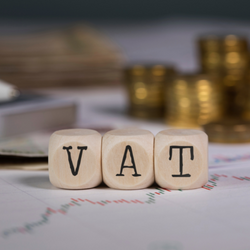The year 2022 was the first fiscal year when the regulations under the so-called the Polish Deal program were introduced. The adopted regulations were very extensive, they modified many existing tax rules, as well as introduced new taxes.
In October 2022, a bill introducing further amendments to the CIT Act and other laws was adopted. The bill modified some of the solutions introduced in Polish Deal. Apart from the exceptions set out in the Act, it is due to come into force on 1 January 2023, with some of the changes applying to earlier periods. Below we present the CIT and VAT amendments that in our opinion deserve your attention.
CIT (corporate income tax)
MINIMUM CIT TAX
Minimal CIT tax was introduced in 2022 and applies to all taxpayers who disclose a loss in their annual tax returns or whose tax profitability is 2% or less. The tax will amount to 10% of tax base.
The taxpayer will be able to choose one of the following methods of determining the tax base:
- 3% of income other than from capital gains – simplified method, or
- sum of 1,5% of revenues and passive expenses (i.e. debt financing and intangible services).
Small taxpayers, municipal companies, taxpayers providing health care services, taxpayers whose profitability in one of the last three tax years was above 2%, and taxpayers in bankruptcy, liquidation or those subject to restructuring proceedings, factoring companies and taxpayers who have entered into a co-operation agreement with the tax authorities will additionally be excluded from the minimum CIT.
It is important that at the end of 2022 the legislator decided to suspend the application of the new regulations in 2022-2023. In accordance with the current regulations, the first calculation of the minimum CIT tax will take place for fiscal year 2024.
TAX ON THE SO-CALLED SHIFTED INCOME
In 2022 a new tax was introduced on companies that are taxpayers on the so-called shifted income. This tax amounts to 19%.
“Shifted income” shall be deemed to be costs incurred directly or indirectly for the benefit of a related entity and constituting a receivable of that entity, if:
- the income tax actually paid by that related party for the year in which it received the receivable in its country of residence is at least 25% lower than the amount of income tax that would be payable on it using the 19% tax rate, and
- these costs:
- are recognized in any form as tax deductible costs, deducted from the income, tax base or tax of the related entity, or
- paid by this related entity in the form of dividends or other revenues from participation in the profits of legal persons for the year in which it received the payment,
– constituted at least 50% of the value of revenues obtained by this entity, determined in accordance with the provisions on income tax or in accordance with accounting provisions.
These costs include the costs of intangible services (advisory, advertising, management, etc.), royalties, fees for transferring the risk of debtor insolvency due to loans, costs of debt financing, fees and remuneration for transferring functions, assets or risks, if the sum of these costs incurred in the tax year for the benefit of entities, including unrelated entities, constitutes at least 3% of the total tax deductible costs incurred in this year in any form.
At the beginning of 2023, in the annual tax return for 2022, the first calculation of the tax on the so-called shifted income should take place.
These provisions do not apply if the costs have been incurred for the benefit of a related entity subject to taxation on its total income in a Member State of the European Union or in a country belonging to the European Economic Area and conducting significant real economic activity in that country.
At the same time, from January 1, 2023, the legislator amended the regulations specifying the rules for calculating the above tax.
The main changes in the so-called shifted income taxation are following:
- only expenses constituting tax-deductible costs incurred for the benefit of related entities not having their registered office or management board in Poland will be subject to tax,
- in order for the tax to be due the following conditions must be met jointly:
- at least 50% of the revenues obtained by such an entity party from related Polish parties must constitute certain passive revenues,
- income obtained by such an entity in connection with given transactions will have to be subject to taxation at a tax rate lower than 14.25% (the method of calculating the rate is indicated in the regulations),
- this entity must transfer to another entity at least 10% of the passive revenues received (additional conditions apply),
- the total costs incurred by a Polish taxpayer for related parties should be at least 3% of the total deductible costs for that year,
- the burden of proof that any of the above conditions have not been met will lie with the taxpayer,
the provisions on the tax on shifted income will be applied accordingly to specific schemes with the participation of tax transparent companies or with foreign entities transferring revenues to other foreign entities benefiting from low taxation.
CHANGES IN THE WITHHOLDING TAX COLLECTION MODEL (WHT)
In accordance with the regulations in force from 2022, the general rules for WHT exemptions / lower WHT rates will apply when payments made to one recipient do not exceed PLN 2 million per year, while if this threshold is exceeded, the Polish tax remitter will have to collect WHT at the statutory basic rate (19% / 20%), and then it will be possible to apply for a WHT refund (new “collect and refund” mechanism).
The new WHT collection mechanism applies to foreign payments to related entities, and the regulation will apply to interest, dividends and royalties (other payments, such as compensation for intangible services, will be excluded from the new WHT mechanism). The Polish payer will be able to apply the WHT exemption / reduced WHT rate also to dividends, interest and royalties paid to a related entity, exceeding the limit of PLN 2 million, but only on the condition of obtaining an „opinion on the application of WHT benefits” or on the condition of submitting a special statement to tax authority.
The amendment to the Act of October 2022 introduced several modifications. As regards the pay&refund mechanism, the regulations as regards the tax remitter’s statement will be more flexible:
- the statement will be filed no later than the last day of the second month following the month in which the threshold of PLN 2 million was exceeded,
- the validity of the tax remitter’s statement will be extended until the end of the tax year in which the statement was filed, while for the subsequent payments the deadline for filing a supplementary statement will be moved to the end of the month following the tax year.
Debt financing costs
As part of the amendment to the Act of October 2022, interpretation doubts have been clarified by indicating that the debt financing costs will be excluded from tax deductible costs in the part in which the excess of debt financing exceeds the higher of the two amounts (PLN 3,000,000; 30% of tax EBITDA).
In addition, restrictions on the costs of debt financing for equity transactions will not apply:
- with respect to the cost of debt financing for the acquisition or assumption of shares (stocks) or total rights and obligations in entities unrelated to the taxpayer (even if the taxpayer has previously acquired such shares and the subsequent acquisition occurs within 12 months of the first one),
- if the provider of the financing is a bank or a cooperative savings and credit union having its registered office in an EU or EEA member state.
The amendments apply in principle to debt financing costs incurred as of
1 January 2022 (not applicable to financing received up to the end of 2021 for equity transactions before that date). Relevant transitional provisions will apply for taxpayers with a shifted tax year.
„THE HIDDEN DIVIDEND”
The Act defines a „hidden dividend” as a non-tax cost that meets one of three conditions:
- the amount of the cost or the date of incurrence are to depend in any way on the profit (or its amount) made by the taxpayer, or
- the taxpayer (e.g. a company) would not incur such a cost if they acted rationally or if they could pay less for the service from an unrelated entity, or
- the cost is related to the payment of remuneration for the right to use the assets that were the property of the partner, shareholder or persons associated with them prior to the establishment of the company.
Conditions 2 and 3 shall not apply if the sum of the costs incurred by the taxpayer in the tax year, constituting the hidden dividend on the basis of these regulations, is lower than the amount of gross profit within the meaning of the accounting regulations obtained in the financial year in which these costs have been included in the taxpayer’s financial result.
At the end of 2022, the legislator decided to repeal the provisions on the so-called hidden dividend, which were to come into force from 1 January 2023.
POLISH HOLDING COMPANY
The Act introduces a definition of a holding company and provides for tax preferences for it, such as exemption from CIT of 95% of the amount of dividends received by the holding company from subsidiaries and full CIT exemption of profits from the sale of shares / stocks in subsidiaries (participation exemption). The new tax regime will be available to Polish holding companies with domestic or foreign subsidiaries. It will be an alternative to the currently functioning institution of the tax group. As announced by the Ministry of Finance, the main goal of the project is to provide Polish entrepreneurs with favorable conditions for the establishment and control of holding groups (accumulation of domestic capital) and the creation of a competitive tax environment that will favor the tax repatriation of Polish entrepreneurs.
As part of the amendment to the Act of October 2022, the provisions on the possibility of using the holding regime were clarified, among others:
- expanding the catalogue of legal forms in which a holding company may operate to include a simple joint-stock company,
- expanding the right to benefit from the CIT exemption for dividends resulting from the Parent Subsidiary Directive to include holding companies,
- clarification of the provisions on, among others, the holding of shares by a holding company in subsidiaries (1 year),
- introduction of a 100% exemption from dividends (currently an exemption for 95% of dividends).
The amendments will apply to income (revenue) earned from 1 January 2023.
DEPRECIATION IN REAL ESTATE COMPANIES (RECos)
After the amendment of the regulations, from January 1, 2022, the residential buildings and residential premises constituting a separate real estate are not subject to tax depreciation. Additionally, in the case of RECos, depreciation write-offs on fixed assets classified as buildings and premises (group 1 KŚT) may not be higher than the depreciation write-offs made in accordance with the accounting principles, charging the entity’s financial result in this tax year.
Under the transitional provisions, taxpayers could, no longer than until December 31, 2022, include in tax deductible costs, depreciation write-offs on fixed assets and intangible assets that are residential buildings acquired or constructed before January 1, 2022.
JPK CIT
The Act introduces the obligation for taxpayers to keep accounting books (tax records) using computer programs and the obligation to send them in a structured form to the tax office.
After the amendment of the Act of October 2022, this obligation is to come into force from 2024 for large taxpayers, and from 2025 for other taxpayers.
Simplifications in the refund of tax on revenues from buildings
The procedure for refunding tax on revenues from buildings will be simplified, i.e. if the refund application is not in doubt, the refund will be made without issuing a decision.
The changes will apply to applications submitted from 1 January 2023.
OTHER CHANGES
Other changes include:
- confirmation that the provisions on the settlement of losses of companies belonging to tax capital groups apply also to losses arising before 2022,
- simplification and clarification of the rules on relief for bad debts (no need to show the relevant claims or liabilities in the tax return),
- modifications to the provisions on the relief for making an initial public offering (exclusion of deduction for taxpayers with income from qualified intellectual property rights),
- changes to the cost recognition of social security contributions,
- introduction of the obligation to submit the CIT-ST information electronically,
- change of the date of updating individual data of large taxpayers by the Ministry of Finance,
- changes in transfer pricing regulations regarding tax havens,
- amendments to the regulations on foreign controlled entities (CFCs),
amendment of the regulations on lump sum taxation on company income (Estonian CIT).
VAT (value added tax)
VAT GROUPS
As of 1 January 2023 the VAT groups were introduced into the Polish legal system. Creating VAT groups will enable entrepreneurs to manage VAT in the entire group, which will affect cash-flow within the entire capital structure. This solution will enable the submission of one JPK_V7M and payment of tax for all entities forming the group. Entities belonging to the VAT group will not have to settle VAT in transactions with each other.
To create a VAT Group it is required:
- conclusion of a written agreement on its establishment for a minimum period of 3 years,
- submitting a registration application to the relevant tax office.
A VAT group can be created only by taxpayers with a registered office or a branch of a foreign entrepreneur in Poland and having connections:
- financial – one entity holds at least 50% of shares in the share capital (or 50% of voting rights) of other members of the VAT group,
- economic – the subject of the main activity of the group members is of the same nature, or the types of activities conducted by the entities are complementary and interdependent, or the members of the VAT group benefit entirely or to a large extent from the activities of the entity that is a member of this group,
organizational – all entities belonging to the VAT group, in law or in fact, directly or indirectly, are under common management or organize their activities wholly or partly in agreement.
THE END OF ANTI-INFLATION SHIELD
Until the end of 2022, the anti-inflation shield was in force in Poland, which reduced VAT rates on basic products. From January 1, 2023, VAT rates return to their original values. The only exception is the VAT rate on food, which has been kept at 0% until the end of June 2023.
Changes in VAT rates from January 1, 2023 are as follows:
| Product | Till 31.12.2022 | From 01.01.2023 |
| Food | 0% | 0% |
| Gas | 0% | 23% |
| Electricity | 5% | 23% |
| Heating | 5% | 23% |
| Fuel | 8% | 23% |
| Fertilizers | 0% | 8% |
SLIM VAT 3
The Ministry of Finance plans to introduce a package of changes to the VAT Act, known as „SLIM VAT 3”.
The main changes included in SLIM VAT 3 include:
- reduction of formalities in international trade;
- a wider range of VAT exemptions;
- limiting the situations that result in the need to correct VAT settlements;
- simpler invoicing;
- reducing VAT sanctions;
- introduction of new rules for currency conversion in the event of issuing corrective invoices;
- facilitations in the VAT e-commerce package;
- increasing the sale value limit for a small taxpayer from EUR 1.2 million to EUR 2.0 million.
This document has been prepared for information purposes only and covers general nature. Before taking any action based on the above information, we recommend that you obtain a valid opinion of TPA experts.

Łukasz Korbas
Partner
Accounting & Payroll Outsourcing
lukasz.korbas@tpa-group.pl



